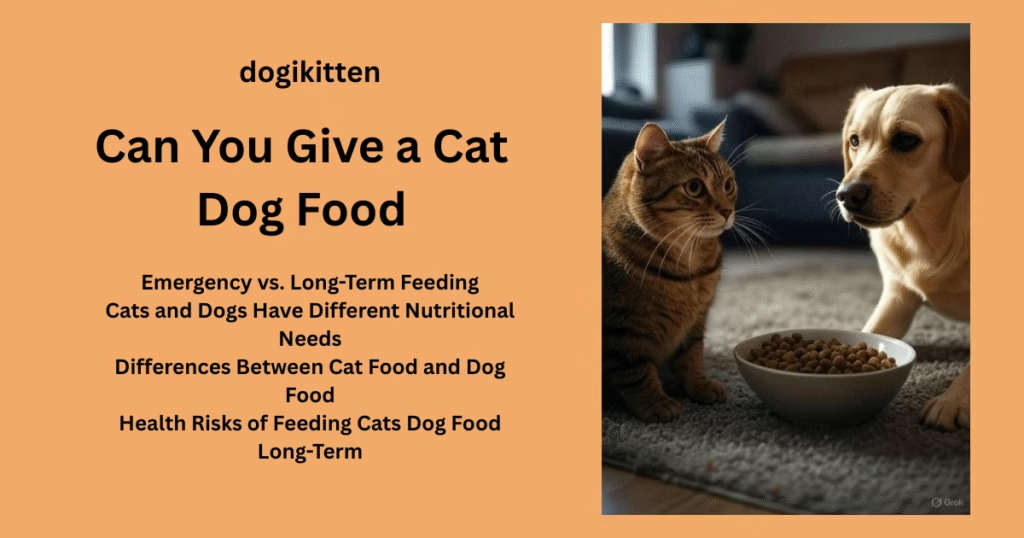
Discover why cats shouldn’t eat dog food regularly. Learn about the nutritional differences, health risks, emergency feeding options, and safe alternatives to keep your feline friend healthy and well-fed.
- Introduction: The Common Multi-Pet Household Dilemma
- The Short Answer: Emergency vs. Long-Term Feeding
- Why Cats and Dogs Have Different Nutritional Needs
- Key Differences Between Cat Food and Dog Food
- Health Risks of Feeding Cats Dog Food Long-Term
- Emergency Situations: What to Do When You’re Out of Cat Food
- Safe Alternatives to Cat Food in Emergencies
- Signs to Watch For and When to Contact Your Vet
- Conclusion: Prioritizing Your Cat’s Health
- FAQ
Introduction: The Common Multi-Pet Household Dilemma
If you share your home with both cats and dogs question arises Can You Give a Cat Dog Food ?, you’ve likely witnessed the age-old scene: your curious cat sauntering over to your dog’s food bowl for an uninvited snack. This common behavior in multi-pet households often leaves pet owners wondering whether it’s safe to let their feline friends indulge in canine cuisine, or worse, whether they can use dog food as a substitute when they’ve run out of cat food .
The relationship between cats and dogs may be complicated, but when it comes to their nutritional needs, the answer is surprisingly clear-cut. While both animals share our homes and hearts, their dietary requirements are fundamentally different, stemming from millions of years of evolutionary adaptation .
The Short Answer: Emergency vs. Long-Term Feeding
For emergencies: Yes, a cat can eat a small amount of dog food without immediate harm . If your cat sneaks a few kibbles from the dog’s bowl or you need to provide one emergency meal, it won’t cause toxicity or immediate health issues .
For regular feeding: No, cats should never be fed dog food as their primary diet. Long-term consumption of dog food can lead to serious nutritional deficiencies and potentially life-threatening health problems .
The key distinction lies in duration and quantity. While an occasional nibble won’t hurt, making dog food a regular part of your cat’s diet can have detrimental, and potentially deadly, consequences .
Why Cats and Dogs Have Different Nutritional Needs
The fundamental difference between cats and dogs lies in their evolutionary classification and digestive capabilities . Cats are obligate carnivores, meaning they must consume meat-based proteins and animal fats for all their body systems to function properly . Their bodies have evolved to depend entirely on nutrients found only in animal tissue.
Dogs, on the other hand, are omnivores (or scavenging carnivores, as some classify them) . This means they have a more flexible digestive system that can process both meat and plant-based nutrients effectively . Dogs can adapt to a varied diet that includes grains, vegetables, and other plant materials alongside animal proteins.
This evolutionary difference means that cats have lost the ability to produce certain essential nutrients internally that dogs can synthesize on their own . Cats must obtain these nutrients directly from their food, making their dietary requirements much more specific and rigid than those of dogs.
Key Differences Between Cat Food and Dog Food
Protein Content
Cat food contains significantly higher protein levels than dog food . According to AAFCO standards, cat food must contain a minimum of 26% protein, while dog food only requires 18% . Cats need this higher protein concentration because they use protein as their primary energy source, unlike dogs who can derive energy from carbohydrates.
Essential Amino Acids
Taurine is perhaps the most critical difference between cat and dog nutrition . Cats cannot produce taurine internally and must obtain it from their diet, while dogs can synthesize adequate amounts on their own . Dog food typically contains little to no taurine since dogs don’t require it as a dietary supplement .
Fat Content
Cats require higher fat levels in their diet compared to dogs. Cat food must contain a minimum of 9% fat, while dog food only needs 5.5%. This higher fat content provides essential fatty acids like arachidonic acid, which cats cannot produce but dogs can .
Vitamin and Mineral Differences
Cat food is formulated with higher levels of vitamin A, vitamin D, and various minerals that cats need in greater quantities than dogs . The caloric density also differs, with cat food being more calorie-dense to meet cats’ higher metabolic needs .
Taste and Palatability
Cats have only 470 taste buds compared to dogs’ 1,700, and they cannot taste sweetness at all . Cat food is specifically engineered to be highly palatable to accommodate cats’ limited taste perception and sometimes finicky eating habits .
Health Risks of Feeding Cats Dog Food Long-Term
Taurine Deficiency
The most serious risk of feeding cats dog food is taurine deficiency . Symptoms develop slowly over months and include:
- Retinal degeneration leading to blindness – cats may bump into objects, seem disoriented, or show reluctance to navigate stairs or dark areas
- Dilated cardiomyopathy (DCM) – a heart condition causing weakness, rapid breathing, coughing, and potentially fatal heart failure
- Impaired reproduction – including spontaneous abortion, infertility, and birth defects
- Compromised immune function and delayed growth in kittens
Nutritional Deficiencies
Beyond taurine, cats fed dog food long-term may develop deficiencies in:
- Essential fatty acids leading to dull coat, skin problems, and vision issues
- Vitamin A causing poor coat quality and compromised organ function
- Adequate protein resulting in muscle wasting and poor overall health
Digestive Issues
Many dog foods contain grains and plant-based ingredients that can cause digestive upset in cats . Cats’ shorter digestive tracts and more acidic stomach environment are designed for processing animal proteins, not plant matter .
Emergency Situations: What to Do When You’re Out of Cat Food
Life happens, and sometimes you might find yourself without cat food when the stores are closed . In true emergencies, dog food can serve as a temporary solution for 24 hours or less . However, this should only be done when no other options are available.
Emergency feeding guidelines:
- Limit dog food to one or two meals maximum
- Choose high-quality dog food with meat as the first ingredient if possible
- Provide fresh water at all times
- Resume normal cat food as soon as possible
- Monitor your cat for any digestive upset
Safe Alternatives to Cat Food in Emergencies
When dog food isn’t available or you prefer other options, several human foods can safely tide your cat over until you can get proper cat food :
Cooked Meats (Plain and Unseasoned)
- Chicken (boneless, skinless, no seasoning)
- Turkey (lean, cooked thoroughly)
- Beef (lean cuts, fully cooked)
- Fish (cooked salmon, tuna in water – small amounts only)
Other Protein Sources
- Cooked eggs (scrambled or boiled, never raw)
- Small amounts of plain yogurt (natural, unsweetened varieties)
Important Safety Notes
- Never use seasoning, salt, garlic, or onions – these can be toxic to cats
- Remove all bones to prevent choking or internal injury
- Avoid processed meats like bacon or deli meats high in sodium
- Keep portions small – these are emergency measures, not complete nutrition
Signs to Watch For and When to Contact Your Vet
If your cat has been eating dog food regularly or you notice any concerning symptoms, contact your veterinarian immediately . Warning signs include:
- Difficulty breathing or rapid breathing
- Lethargy or unusual weakness
- Changes in appetite
- Vision problems or bumping into objects
- Coughing or signs of heart problems
- Digestive upset lasting more than 24 hours
Seek immediate veterinary care if:
- Your cat shows signs of heart problems (rapid breathing, weakness, collapse)
- Vision changes occur suddenly
- Your cat refuses to eat for more than 24 hours
- Any symptoms worsen or don’t improve quickly
Conclusion: Prioritizing Your Cat’s Health
While the occasional stolen kibble from the dog’s bowl won’t harm your cat, dog food should never replace proper feline nutrition . The fundamental differences between cats and dogs extend far beyond their personalities—their nutritional needs are distinctly different due to millions of years of evolutionary adaptation .
Remember these key points:
- Dog food lacks essential nutrients cats need, particularly taurine
- Long-term feeding of dog food can cause serious health problems including blindness and heart failure
- In emergencies, dog food can be used for 24 hours maximum
- Better emergency alternatives include plain cooked meats
- Always consult your veterinarian if you have concerns about your cat’s diet
The best approach is always prevention: keep adequate supplies of high-quality cat food on hand and establish a routine for monitoring your pet food inventory . Your cat’s health depends on receiving the species-appropriate nutrition their obligate carnivore nature requires . When in doubt, remember that what’s good for dogs isn’t necessarily good for cats—and your feline friend’s unique nutritional needs deserve the specialized diet they’ve evolved to thrive on.
Frequently Asked Questions: Can You Give a Cat Dog Food?
Q: Is it safe for my cat to eat dog food occasionally?
A: Yes, a small amount of dog food eaten occasionally won’t cause immediate harm to your cat. If your cat sneaks a few bites from the dog’s bowl or eats dog food once or twice, there’s no need to panic.However, this should remain an occasional occurrence and never become a regular habit.
Q: Can I feed my cat dog food as their main diet?
A: Absolutely not. Cats should never be fed dog food as their primary diet.Long-term consumption of dog food can lead to serious nutritional deficiencies and potentially life-threatening health problems including heart disease, blindness, and organ damage.Dog food lacks essential nutrients that cats require, particularly taurine, which is crucial for feline health.
Q: What happens if my cat eats dog food regularly?
A: Regular consumption of dog food can cause severe health complications in cats. The most serious risks include taurine deficiency leading to dilated cardiomyopathy (heart disease), retinal degeneration causing blindness, and compromised immune function.Cats may also develop nutritional deficiencies in vitamin A, arachidonic acid, and other essential nutrients, resulting in poor coat quality, skin problems, and digestive issues.
Q: Why can’t cats and dogs eat the same food?
A: Cats and dogs have fundamentally different nutritional needs due to their evolutionary differences. Cats are obligate carnivores, meaning they must consume meat-based proteins and animal fats for all their body systems to function properly. Dogs are omnivores and can digest both meat and plant-based nutrients effectively. Cat food contains significantly higher protein levels (minimum 26%) compared to dog food (minimum 18%), and includes essential nutrients like taurine that dogs can produce internally but cats cannot.
Q: Can I give my cat dog food in an emergency?
A: Yes, but only as a temporary solution for 24 hours maximum. In true emergencies when cat food is unavailable and stores are closed, dog food can serve as a short-term substitute. However, this should only be done when no other options are available, and you should resume normal cat food as soon as possible. Monitor your cat for any digestive upset during this time.
Q: What are better emergency alternatives to dog food?
A: Several human foods make safer emergency options than dog food. Safe alternatives include plain cooked chicken (boneless, skinless, no seasoning), turkey, lean beef, cooked fish like salmon or tuna in water, and cooked eggs. Always ensure meats are fully cooked, contain no seasoning, salt, garlic, or onions, and remove all bones to prevent choking.
Q: How much dog food can a cat safely eat?
A: Only very small amounts on rare occasions. If your cat accidentally eats dog food, limit it to one or two meals maximum in emergency situations. For occasional nibbling, a few kibbles won’t cause harm, but generally 90% of your cat’s calories should come from balanced cat food. Any amount beyond occasional tastes can start to compromise their nutritional intake.
Q: What symptoms should I watch for if my cat has eaten dog food?
A: Monitor for both immediate and long-term symptoms. Short-term symptoms may include vomiting, diarrhea, constipation, and in rare cases, pancreatitis. Long-term signs of nutritional deficiency include lethargy, changes in appetite, vision problems, difficulty breathing, coughing, skin problems, and poor coat quality. Contact your veterinarian immediately if you notice rapid breathing, weakness, vision changes, or if your cat refuses to eat for more than 24 hours.
Q: How can I prevent my cat from eating dog food in a multi-pet household?
A: Establish separate feeding routines and physical barriers. Feed pets in different rooms or at different times to prevent food stealing. You can place the dog’s food bowl on a higher surface that the dog can reach but the cat cannot, or use tin foil around the bowl since cats typically avoid walking on it. Consider feeding scheduled meals rather than leaving food out all day, and supervise mealtimes when possible.
Q: Is dog food toxic to cats?
A: Dog food is not toxic to cats, but it’s nutritionally inadequate for feline health. Unlike some human foods that are poisonous to cats, dog food won’t cause immediate toxicity or poisoning. However, the lack of essential nutrients makes it unsuitable for regular consumption and can lead to serious health problems over time.
Q: Can kittens eat dog food?
A: No, kittens should never eat dog food. Kittens have even higher nutritional requirements than adult cats and need specific nutrients for proper growth and development. Feeding kittens dog food can result in delayed growth, compromised immune function, and developmental problems. Always provide age-appropriate kitten food formulated specifically for their developmental needs.
Q: What about senior cats – can they eat dog food?
A: Senior cats should especially avoid dog food. Older cats (around 9-11 years old) have changing nutritional needs and may require senior-specific diets that are easier to digest with adjusted calorie content. Dog food’s inappropriate nutrient profile can exacerbate age-related health issues and doesn’t provide the specialized nutrition senior cats need to maintain their health.
Q: Is raw dog food safe for cats?
A: Raw dog food poses additional risks beyond nutritional inadequacy. Raw foods can contain harmful bacteria including Salmonella, Listeria, Campylobacter, and E. coli, which can cause illness in both cats and their owners. Nearly 25% of commercially available raw pet foods test positive for harmful bacteria. Raw dog food also lacks the proper nutritional balance cats require and should be avoided entirely.
Q: When should I contact my veterinarian?
A: Contact your vet immediately if your cat shows concerning symptoms or has been eating dog food regularly. Seek immediate veterinary care if your cat exhibits signs of heart problems (rapid breathing, weakness, collapse), sudden vision changes, refuses to eat for more than 24 hours, or shows persistent digestive upset. Also consult your vet if your cat has been consuming dog food as a regular part of their diet for any extended period.
Q: How can I ensure my cat gets proper nutrition?
A: Feed only high-quality, species-specific cat food that meets AAFCO standards. Look for foods labeled “complete and balanced” for your cat’s life stage, and choose products with meat as the first ingredient. Ensure fresh water is always available, and consult with your veterinarian about the best diet for your cat’s age, health status, and any special needs. Avoid the temptation to use “all-purpose” pet foods, as each species requires their own specifically formulated nutrition.
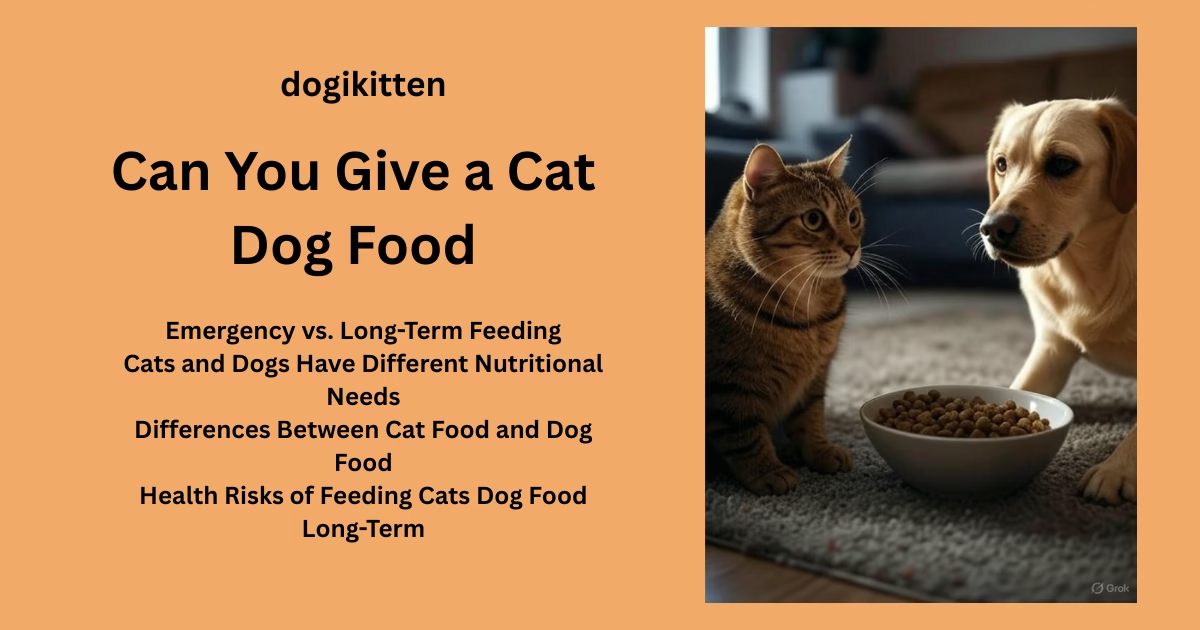

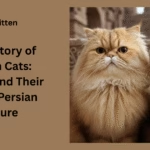
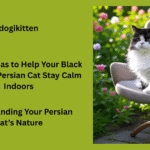
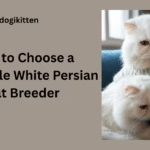
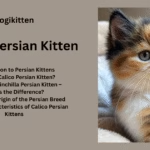
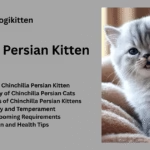
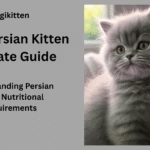
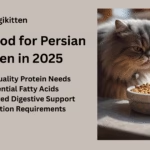
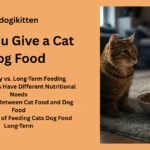
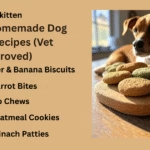
2 thoughts on “Can You Give a Cat Dog Food”